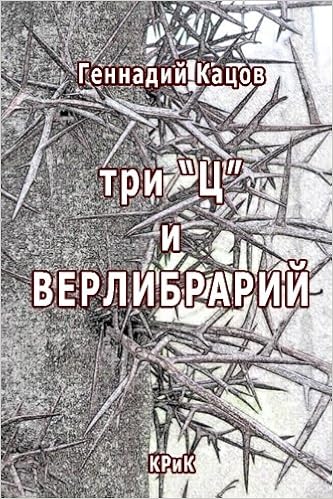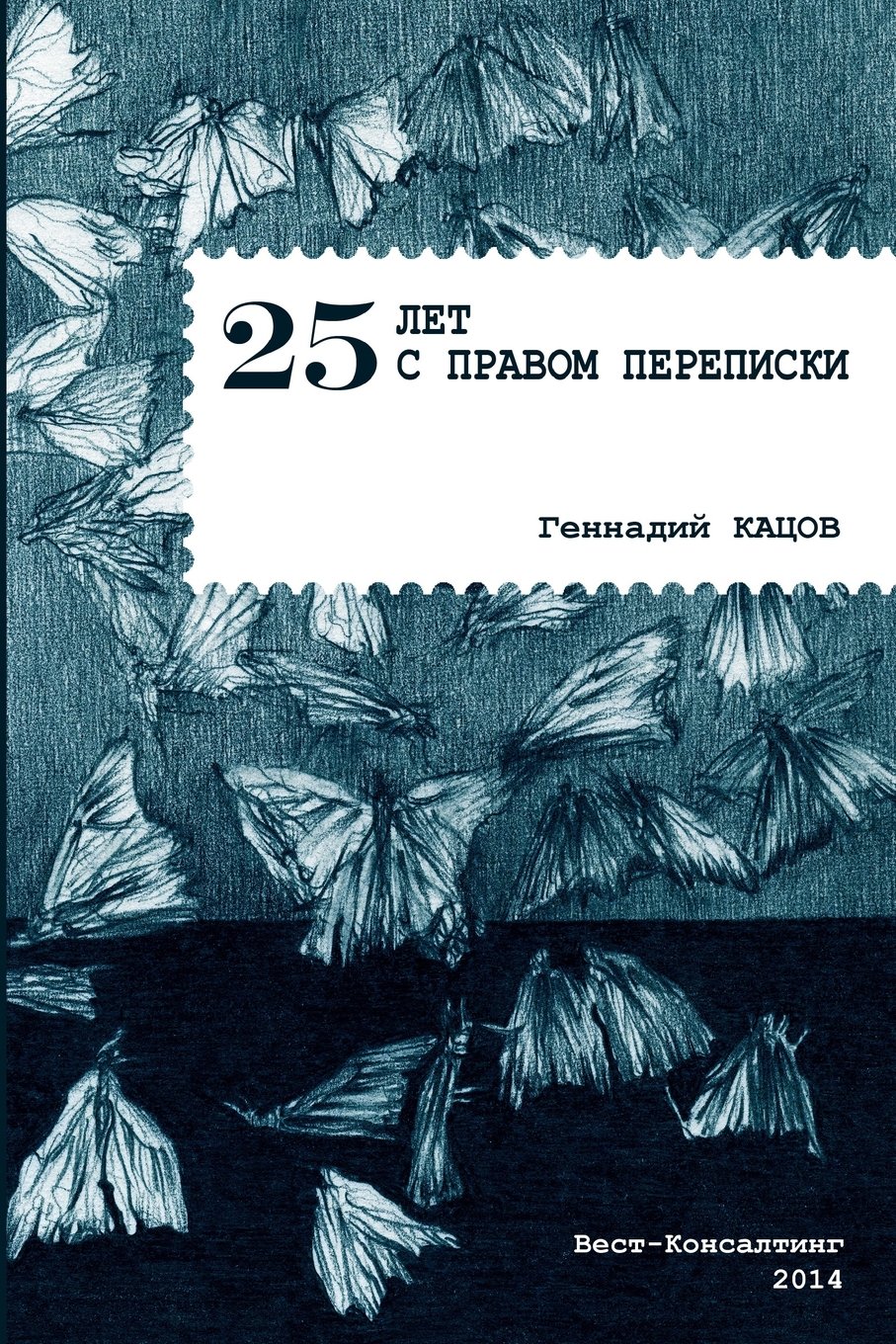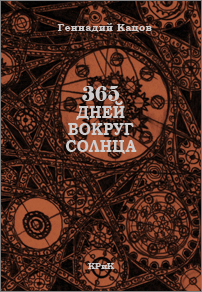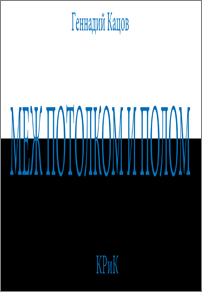In English
Translated from the Russian by Alex Cigale and Gary Light
“A long-time journalist and observer of the popular and high culture scenes, with this book-length project, Katsov has returned to his roots in poetry. A life-long habit of looking and reading closely is everywhere in evidence in these ekphrastic poems. As has often been remarked about that hotter medium, the film screen, what a viewer faces on a flat, projected surface (the 180 poems of this volume might well stand in for 180 degrees) is simultaneously both window and mirror, so that what the watcher sees reflected therein are projections of her own self, as a sample of all humanity. At his best, Katsov “casts a cold eye on life, on death,” as projected onto this canvas “through five heroic centuries”. In the most effective of these poems, he succeeds in establishing, in the voice of a guide or a confidant or a co-conspirator, a tone of intimacy with the reader so that we, looking along with him, are brought at the same time into a closer relationship with ourselves.”
Alex Cigale, poet, translator, editor
№160 Sergei Sudeikin “The Yellow Kite”
Translated by Nina Kossman

Straight lines, loops, and coils …
A yellow kite in the summer sky
Fiercely fighting for its life,
Flying now left, now right,
Now straight, like a window
In a train car, with a lamp;
Its yellow light is out, but
From the outside it seems on.
There a passenger is alone
With himself amid shadows:
He watches – in a dream – a yellow kite
Hover in the summer sky.
№107. Arkhip Kuindzhi “Night on the Dnieper River”
Translated by Gary Light
When there is a potential perspective, the reason for which either near or far
Slips away in the nighttime despite the astonishing depth
On the streamlined patch of reflected light, away from the disk of the moon
One realizes that a moon river indeed exists.
The path of that river upon the surface is not a winding one, but is rather divisible
Into the length of that reflected wave,
Which flows into a certain crater of ash,
Precisely from the dark side of the moon.
Whether one is alive, or exists in the other realm,
Or the fact, that one wasn’t himself in his term of existence,
One will not be informed on this planet assigned to him,
Yet, one’s double will not find out on opposite planet.
№28. Gustav Klimt “The Portrait of Emilie Floge” Translated by Gary Light
The night flows through a dream; which could be eavesdropped upon
By anyone, on any chosen wavelength.
As all sashes of the seashells are exposed
In order to phosphoresce on the ocean floor
The whole scaly, submerged puzzle
Reflects the darkness, and what is above
Where countless eyes of the sky
Are illuminated, as those of the nocturnal carnivores.
Where from the bottom of the ocean floor, without disturbing the sludge,
Out of all the spent and broken minutes
All the debris of the mirror, as if that of the world
Endlessly stream with the flow.
№30. Rene Magritte “Golconda”
Translated by Gary Light
It’s all on angels: when the winged Seraphim
Flies to the pupil’s light, into the glow of liquid flesh
Of one’s eyeball, in that flickering flight of an angel,
And the eyeball teardrops as if it is paraffin.
The sapiens is weak: to him that upper glance of other world,
As if a lethal dosage to the sense of levitation,
He is submerged into the longing of the tragedy, and secrets
If Mandelstam’s “Shubert on water. If Pasternak’s boiling poplars”.
Those hosts of angels stalled in fight’s abyss,
And he is sadly small, but his features are reminiscent:
Not his of theirs, but rather, theirs of his,
Percentage wise, G-d’s generous rentier.
*Golconda was an affluent town in India, akin to a miracle. What I deem to be a miracle though, is the fact that I will be able to walk upon the sky, while actually walking on the surface.
№1. Jan Vermeer, “The Milkmaid”
Translated by Alex Cigale

As when the wind carves in sands cities-mirages,
Water hones stone, returning it to arc-shaped dune –
It means centuries have fled, like sand and water,
Conserved in an hourglass: damp traces on the surface.
Reading gravestone and crypt you risk not understanding
Clio is more sentimental than history’s serial butchers:
Perhaps because playful, cowardly (or simply a cunt).
That tendency toward cheap effects, derivative crap.
No date to match this canvas. With attention, labor, ease,
Solitary, in groups, wearing contact lenses, suits, saris:
In the museum goers’ moments the thin quiver of milk
Will never touch clay nor fill the pail nor ever sour.
New York, May 10, 2011
№2. Claude Monet, “Rouen Cathedral”
Translated by Alex Cigale

The buzzing of a beehive swarm where insect-paint
Shivering formulates the likeness of a façade;
In Rouen, the trail from nave to sacrificial altar,
The shining path to the city-on-the-hill.
Both voice and prayer are of vibrations made,
As in an inner dialogue of self with self:
Just so the ray of light, gently brushing the stones
Is reading Saint-Romain and the entire Cathedral.
Oh, Impression! All is aglide (like, for example,
Both the religious mode of life and daily bread,
Like that first eminence – gospel and faith –
Like the path to the Temple we have forgotten).
New York, May 13, 2011
№3. Andy Warhol, The first “Self-Portrait”
Translated by Alex Cigale
Four silkscreens, the background a sky blue,
With head held straight up, and to the side.
Already famous but not yet as a God:
Together brought him sixteen hundred bucks.
The glasses sit on the nose’s bridge,
Like two dark aughts – though a king, naked.
But the third – neck held in a tight-knot brace,
And the void of the tie strangling his neck.
Belatedly we’ve learned: not half a century
Past, the battle host of zeros is limitless.
But long before that – a bullet in the gut.
And twenty years hence, immortality.
New York, May 13, 2011
№4. Francesco Guardi, “The Venetian Yard”
Translated by Alex Cigale

The echo in the innards of the yard
Some fifteen blocks from the Lagoon.
Here, with the white seagulls, as on bearings,
A corner of the sky glides with a steady hum.
The air of January is salty and brisk,
The waning light strained by the clouds.
And a man, usually a shade of beige,
His back and hands emit a bluish glow.
He’s moving away. And God will forgive.
But jingling, like glasses on a metal tray,
According to all earthly laws of perspective,
Appears: “Joseph,” in the depths of the yard –
“Iosif…
Osya.”
New York, May 15, 2011
№5. Amadeo Modigliani, Portrait of “Chaim Soutine” (1915)
Translated by Alex Cigale

What red is: nakedness, juice, and silhouettes;
The cow turned inside out: the chasm of lust,
To all concerned, no sign of difference.
As in the shtetl so in Paris, red is red.
In Paris also: hunger, numbing cold, and dirt.
Returning home to a house called “Beehive,”
You find a rat awaiting in your armchair,
As though tormented in the cage of night.
All Paris peopled by yours: Chagall, Kikoïne,
Zadkine, Krémègne; so much beside drunkards,
Garlic cloves with wine, and herring every day –
And you, reading Pushkin to Modigliani.
New York, May 19, 2011
№6. Vincent Van Gogh, “Night Café in Arles”
Translated by Alex Cigale

The clock ticks. The billiard table tilts. Nothing’s
at rest. Some rooms you can’t get drunk in:
In their mirrors, the light burns so brightly
Not even the thought of a reflection may stir.
Their occupants, even in other times,
All “Cote de Provence” suffused – sadness, gases –
And if someone here were thrown into hell,
They’d emerge immediately, centuries hence.
The floor brushed with ocher gives off no luster,
The oil lamps shed tears without nary a blink,
And the one who runs into this bistro for a drink
Will neither shudder nor leave. Nor ever escape.
New York, May 21, 2011
№7. El Greco, “View of Toledo”
Translated by Alex Cigale

The essence of history is “Torah” and “I”
With the aforethought that they fall in line,
coincide in the calendar’s black weekdays
and red Sundays – life, letters, and details.
The road transforms all into a minor scale:
The fellow travelers, the towns and dates;
The View of Toledo and what Toledo sees
Perhaps where once distinct, but long ago.
The denizens of castles and of halls a niche
In which the nights and days were passing.
You wouldn’t remember were it otherwise,
Unless their citations and fates coalesced.
New York, May 23, 2011
№8. Otto Dix, “Portrait of the Journalist, Silvie von Harden” (1926)
Translated by Alex Cigale

The pile of ash on the tip of the cigarette,
Attention to the right stocking, rolling down.
Jugendstil dominates beer hall and plein air.
That decadence, lips expelling a syllable.
With faith in Wehrmacht, Luftwaffe, Frau’s womb,
In perspective and peace, and victory at war!
The Third Reich – Soldaten’s meat for cannons.
It’s fraulein, whose duty is to give soldiers birth.
In the beclouded monocle no longer visible
Are Weimar, Mann, Spritzer, Jazz, and cabaret.
Pikes of right hands and thundering Deutsch
In which the oracle shrieks, like early rapping.
New York, May 27, 2011
№9. Ivan Aivazovsky, “The Seventh Swell”
Translated by Alex Cigale

A swimmer ignorant of wave could not swim.
I’m the Lord, thy God: merge together as one
With the seventh swell – God’s ardor and will –
Returning in possession of a seventh sense.
How else might he reveal himself to us?
Seated alone in a café with an espresso,
Covering with a cap his carnal nimbus,
So that the passersby not even notice.
But who would need such a timid Maker:
A feckless intellectual, tax-paying citizen?
But this – this madness, this abyss, this Swimmer,
This crowning glory, bedazzling and austere.
New York, May 31, 2011
№16. Oleg Vassiliev, “White Skiers”
Translated by Alex Cigale

His body eclipsing the entire landscape
Covered in ash or in white powder snow,
The shadowy shape takes his step toward
The figures of light: check, mate, fairy tale.
The moment is stilled. The silhouette,
So mournfully beautiful in the present.
Death – under-standing, a game of “freeze,”
Answering the mover: he will be revealed.
On the black and white cells fate will Kazimir
Its own square, malleable or malevolent.
Yet one aware of what the Game consist in
Will not likely decipher it to those gone ahead.
Lucas Cranach, the Elder “The Golden Age” (1530)
Translated by Alex Cigale
No evil, no lie, no revenge, no envy:
Not even a thought, not to trust someone.
Ambling together in the garden of pleasures,
Make friends an offering, an evergreen branch.
To part with nothing in this life, and no one,
To write no books, nor choose a soul mate:
Forever there will be this notion of a dance
That holds an answer to this world’s mystery.
To watch from morning sunrise, till sunset
Jig against the background of a ghostly sky….
The golden age was fabulous, if passing.
Though it was sad, that such one never was.
New York, 12.25.2011
Grant Wood, “American Gothic” (1930)
Translated by Alex Cigale
The house – a fortress, white, redoubtable.
The foundation solid, fences blinding bright
And, like a row of middle fingers, stuck upright.
The roofs peaked, in high-retro gothic style.
In the sober Midwest American provinces,
Among standard barns, the cattle, milking cows,
The rigid watchfulness of its stolid citizens,
Hearing sharpened, sense of smell perked up.
Their boots dug in deeper than bottomless wells,
Their views on life and wills are iron pronged,
They turn a deaf ear to all the slanderous rumors
Those outsiders, the rootless cosmopolites, brang.
New York, 01.28.2012
№52. Roy Lichtenstein, “Drowning Woman” (1963)
Translated by Alex Cigale
“How’s it going?” The canonical question.
It would be nice to answer honestly, simply,
Sliding behind the wheel of luxury, a Cadillac,
or while piloting a single-engine Cessna.
My soul has always feared the buck of changes.
And, not wishing to risk ending up in a coma,
Adrenalin, that the reader, just like your common
Superman, spews in his perusal of comics.
He’s one against all, a blight of copper vitriol.
They do not get the gist of mass psychosis.
And only one question garners no response:
“Where are all those killed in the comics buried?”
New York, 03.04.201
№56. Egon Schiele, “Family” (1918)
Translated by Alex Cigale
It’s one happy family: the toddler,
Father, mother, together for a sitting.
And only a curious gaze would note
In the absence of smiles only
The reproach of indissoluble souls
And the unborn son’s missing shadow,
Only the influenza’s virus accompanying
Those offed by the universal pestilence.
“Rest in peace,” “In loving memory,” echo
From the remote workdays still to come
Of a family that can never be diminished,
For that can never be which never was.
New York, 03.19.2011
№74. Winslow Homer, “Summer Night” (1890)
Translated by Alex Cigale
As though night was casting spells on the oceanic shore;
Where the path to the moon is only two dozen steps away.
Where very little of America remains, as though it never was,
We danced out of melancholy, to no audible melody.
Without the usual rhythm in the requisite three-quarter time,
On the damp horizon paved over with thick dark asphalt,
The same swooning pair, all four, without being reflected,
in silence danced, for no apparent purpose but sincerity.
No matter that the molten lead of July’s cauldron
Foams and bubbles with the uncreated constellations,
And from above, barely audible in the night sky, a hymn
Descends, providing the soul fodder for its figments.
New York, 04.28.2012
№77. Edward Hopper, “Nighthawks” (1942)
Translated by Alex Cigale
From the Tuesday in early March
Through Wednesday end of April,
For each, approximately a quart
Of a bottomless pitcher of ale.
Taking your cue at the bar of sorrows
(Neon being the nectar of demiurges,)
You owe not a thing to the town nor is
Anything needed of you by the world.
Drink plus loneliness – that’s freedom!
Accept no compromise. It will not do
To enter here from outside – no door.
And he who does get in will never leave.
New York, 05.01.2012
№104. Komar and Melamid,
“Once in childhood I glimpsed Stalin” (1981-1982)
Translated by Alex Cigale
In childhood I once glimpsed Stalin
Through the window of his limo,
His features frozen for a minute
Lasting about a hundred seconds.
In its recesses he was melting
While I, observed how the owls,
Drifting above the cortege in flocks,
Flew after him into the distance.
With the impeding stroke of midnight,
And with the many years to come,
The portrait of the moon merged
With the likeness of the Master.
New York, 07.14.2012
№ 109. Guercino (Giovanni Francesco Barberi,)
Return of the Prodigal Son” (1619)
Translated by Alex Cigale
Perhaps as a loser, a fool, a deluded fellow,
He may, having squandered his inheritance,
One day, finally but unexpectedly, return here
To sleep the jag off under the familial roof.
Magnanimity is for books and proverbs:
The columns of the calendar are cancelled,
One cross at a time – sign of the father’s losses,
The orphan’s portion on which they’ve befallen.
The road back of a lost, wandering soul, from child
To father, is never well-marked with road signs.
The first step, though never amounting to much –
May it also one day bring you closer to home.
New York, 07.28.2012
№111. Francisco Goya, “Execution of Revolutionaries on the night of May 3, 1808” (1814)
Translated by Alex Cigale
Were it possible to remain outside the process,
As long as one may live, to stay uninvolved.
Eschewing causes that may prove stressful,
But still at night they lead you to the execution spot.
And all that had been lived no longer matters,
This moment, everything is bull and crap.
All this because that once-upon-a-time when
You were their neighbor, compatriot, son.
What sage could decode the answer and
Which tome and volume contain the reason
Why the moment the bullet hurtles towards me
This unbearable scream cannot be mine?
New York, 07.31.2012
№117. Carl Larson, “Summer Morning” (1908)
Translated by Alex Cigale
I think it was seven. In the ecstasy of bathing.
Goosebumps spreading on the exposed thighs.
The little basin ripples with pump-well damp
And shivering a tooth cannot set on tooth.
The cottage summer meets the cold morning –
The school break certainly has no end in sight,
And the boy, fresh out of bed, undressed,
No shoes on, washes off the extra layer of dirt.
And the radio song, like camphor in the ears,
And as a contoured map the length of the wall
Hangs the entire USSR, like a stretched skin,
Of a country that has not yet been killed.
New York, 08.12.2012
№120. Andrew Wyeth, “Christina’s World” (1948)
Translated by Alex Cigale
The arid and dry agrarian comfort,
In the total absence of any stage props,
Among the fields of cryptic gravitations
That do not let one rise to one’s feet.
A field mouse darts along the edges,
With every acre’s sowing a sail sewn up:
Everything is motion…. After the ellipsis,
The exception of her wasted calf muscles.
And while her soul and body don’t coincide,
Even as a mirage, the askew body itself –
To the soul, stepping beyond its borders,
Viewed from above, is anyway small stuff.
New York, 08.18.2012
№146. Henry Reburn, “The Deacon Robert Walker Skating on Lake Daddingstone” (1795)
Translated by Alex Cigale

Геннадий Кацов СЛОВОСФЕРА № 146 Генри Ребёрн, «Священник Роберт Уолкер, катающийся на коньках на озере Даддингстон» (1795)
You want me to eat the earth of potted flowers?
V.V. Putin
Having departed aged one oh eight to his rest
(Just as his successor was appointed)
He went to take a leak in the mornings – such
Was the established routine at the dacha.
Around midday he would lace up his skates
(the Salchow, the axel, and the triple Lutz,)
And toward evening a gang of messenger boys
Called to enquire for their options on the stocks.
The frigid night resounds with the wage slaves’
Scottish moans – but in Russian, foul-mouthed:
There’s little doubt why that year, crazy and wild
Two thousand ten, Daddingstone became his pad.
New York, 10.18.2012
№149. Paul Ranson, “Three Bathers Among the Irises” (c. 1900)
Translated by Alex Cigale
One river. Two shores. The bushes
Planted round without thought to plan.
Three odalisques that, deliberately,
Had stripped themselves to unclad.
Lazily, dreamy, sentimental, the water
Lures the women into their reflections.
And the entire landscape lies fragmented,
Moments, years strewn along the river bank.
How are they distinct, different from us?
What mysterious tendency is it that keeps
This clone-of-an-epoch from repeating?
Must be acceleration – kilometers per hour.
New York, 10.22.2012
№161. Oscar Rabin, “The Black Cat” (1966)
Translated by Alex Cigale
There are two stories – they’re almost
Like two sides of the very same coin.
One, everything that has been lost.
The other, what has been mastered.
A tome about the inheritance
Of ruins, the current stage – one tome,
even though one and the same atom,
the outcome, is one and the same.
And if read backward to the foreword,
to travel and return to the threshold –
once upon a time, will cross your path,
same place as always, the one Black Cat.
New York, 11.02.2012






















